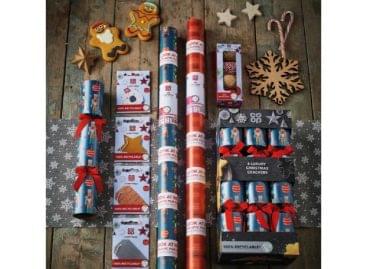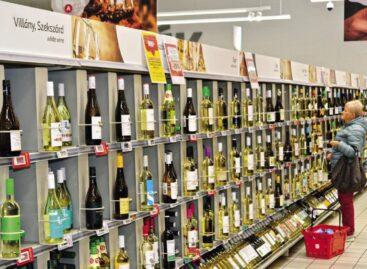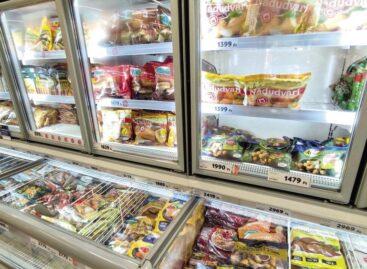Efficiency increasing to the extreme
Today’s challenges, such as growing motor fuel and energy prices, inflation, supply problems and the drop in consumption make many actors in retail and wholesale trade review their operations. Let’s see a few examples from all over the world!
Areas supplied
Wholesalers need to be much more flexible in building their partner base. As they have to optimise their routes and costs, many of them quit certain geographical areas, which may be left without any kind of product supply. Wholesale work is divided into smaller zones, but in these zones more partners are supplied with more product categories than before. It helps wholesalers that shorter supply chains are becoming more frequent, as retailers prefer regional products that can end up on the shelves of stores much faster.
Connected
Digitalisation is simply a must, in order placement, tracking, documentation and payment alike. Hybrid delivery is gaining ground, bicycles, electric vehicles and drones are also used nowadays. Communication is key, as supply chain disruptions and product shortages need to be managed in different communication channels. Building a community and forming groups ensures the interactive flow of information and rapid activation, e.g. a frozen food sale can be implemented quickly if there is a power outage. Efficient resource management is also very important. Automation, part time work, remote work and robotics can open new horizons. Using dark warehouses has been more common since the COVID pandemic, and now it is time for wholesalers to introduce their own sources of energy, recycle waste, etc.
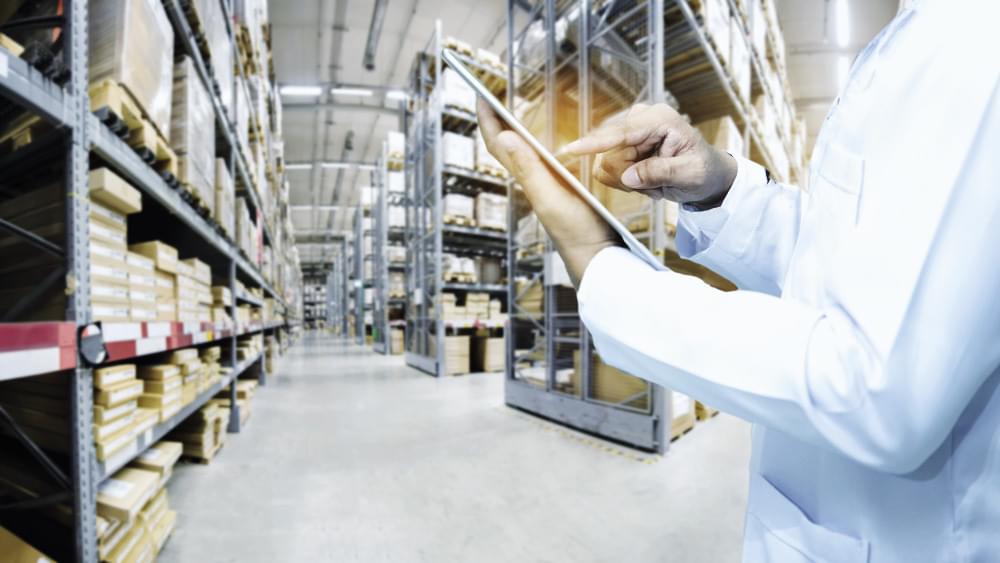
Orders are made and tracked and payment is increasingly effected by various electronic means
Private labels
As shoppers are searching for cheaper alternatives in stores, wholesalers also have to build a private label product selection, with which they can help their retailer partners stay in the game. FMCG sales are decreasing, as shoppers are increasingly conscious and many of them are downtiering. Wholesalers and their partners should also consider answering new needs with their product selections. They can share their experiences, engage in closer cooperation and turn into a kind of knowledge centre for products, practical solutions and financial services. Buy-online-pick-up-in-store (BOPIS) is very popular in North America, even more so because once the customer goes to the store, they will buy a few things more. Research has found that 47% of BOPIS shoppers buy further products when they pick up their order.
Wholesalers, distributors and importers
Below you can read how some of Trade magazin’s wholesaler, distributor and importer partners summarise the top events of 2022 (even if the most important period of the year is still ahead of them), comparing this year with the previous one. You can also check out their business results from 2020 and 2021. //
New product category and a new brand at Chef Market


Dr. Richárd Andrejszki
CEO
Chef Market
This year Chef Market built a 500kW solar panel park on 8,000m², reinsulated its warehouse and replaced traditional light fittings with LED ones, to reduce the company’s ecological footprint. As a result of the portfolio expansion that started in 2020, guests can order organic, biodynamic and natural wines and sparkling wines in a growing number of restaurants. Chef Market’s Mitiszol? brand seeks to educate
consumers in the category of organic alcoholic drinks. CEO Dr Richárd Andrejszki: “Innovation work and our dedication to partners is the driving force behind Chef Market, and we continue to do our best to contribute to the development of Hungary’s hospitality sector.”
Consistent portfolio and supplier management at Foodnet

Foodnet Zrt. is the exclusive distributor of several leading and premium food brands. Trade marketing and brand manager Kitti Pipó: “The key to our success is the full-scale, high quality services we offer to partners, from importing the products through displaying them in stores to doing brand building work. We are proud of the fact that many of the brands that we distribute have become market leaders throughout the years. For instance our Müller Riso product boasts a 60% market share.” Foodnet Zrt.’s long-term strategy rests on two pillars, the consistent management of the product portfolio and supplier partners. //
Innovative brands, professional work
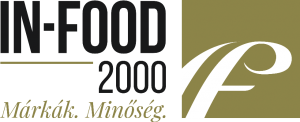
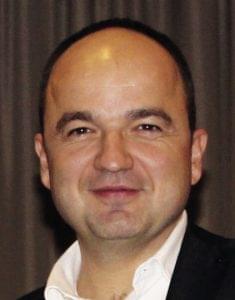
Norbert Horváth
owner-managing director
In-Food 2000
The In-Food 2000 Kft. story started with Austrian-made Pfanner fruit juices. At the moment In-Food 2000 Kft. represents top brands in 8 categories such as Vöslauer and Almdudler (Austria), Rio Mare , Cirio and Monini (Italy) and Heinz. Managing director and co-owner Norbert Horváth: “Our products are present on the shelves of Hungarian-owned and multinational retail chains, in restaurants, street food joints, hotels and the kitchens of Hungarian homes.” Besides the innovative brands they distribute, the company’s success also relies on their professional work, local brand building and active communication with consumers. //
A healthy lifestyle expert


Judit Balogh
marketing manager
Herbaház
Herbaház is one of Hungary’s top organic and reform food, dietary supplement and medicinal product chains. Their expertise and large selection of products have been helping consumers who follow a healthy lifestyle for 30 years. 100% Hungarian-owned Herbaház operates 7 stores and an online shop, and they serve more than 1,000 reseller partners from the company’s own logistics centre in Budapest. Head of marketing Judith Balogh: “Good prices, a pleasant shopping environment, and more than 14,000 SKUs are waiting for shoppers in our stores. In 2020 we launched the Herbaház Club programme, with big discounts and personalised offers for loyal customers.” //
Kerekes: development in the most difficult times
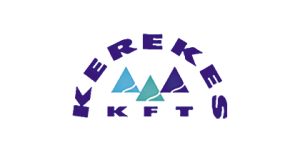

Zsolt Novák
commercial director
Kerekes
This year, when manufacturers increase their prices by double-digit numbers from time to time, Kerekes Kft. tries not to do the same with the store network they are working with. Instead of this the company is teaching itself and partners how to operate with greater efficiency, lower costs and better organisation.
In 2022 Kerekes Kft. even implemented numerous development projects. Commercial director Zsolt Novák: “As regards 2023, we are trying to be optimistic and to adapt to shopper habits as much as we can, just like in the past.” //
Brands are their passion


Péter Szemes
managing director
Maresi Foodbroker
Distributor Maresi Foodbroker Kft. has a stable international background as a member of Maresi Austria GmbH. Some of the pillars of Maresi’s product selection are their own Maresi coffee milk, Shan Shi cooking ingredients for Asian dishes and Knabber Nossi snack sausages. Managing director Péter Szemes: “Another stronghold of hours is our distributor brands. We are proud to be partners with several leading international premium brands. In the frozen food category we distribute Iglo fish fingers and vegetables, plus Häagen-Dazs ice creams. We also have more and more non-food products in our portfolio: this year we added Sofix floor cleaners.” //
New strategy and omnichannel selling


Ákos Taferner
head of marketing
METRO
In 2021 METRO introduced a new strategy, as part of the omnichannel transformation of wholesale. One of the focal points in this is serving professional buyers and operating sustainably. Head of marketing Ákos Taferner: “In 2021 with the refurbishment of our Budakalász store, we started a modernisation project for all 13 Hungarian METRO stores. A shorter shopper route and a more transparent product selection make shopping easier for customers, together with new services such as the Express Checkout and the METRO Companion app.” METRO stores already offer more than 4,000 “More at lower prices” products, and the wholesaler caters for the online presence of HoReCa partners with the Dish by METRO restaurant software. //
Orbico offers extra services to brand owners
![]()

Zoltán Becze
managing director
Orbico Hungary
Orbico Hungary Kft. celebrated its 10th birthday in September 2022. Parent company Orbico Group is one of Europe’s biggest distributors, and Orbico Hungary’s mission is to provide partners with extra services, improving the distribution of their brands and offering them a sustainably profitable business model. General manager Zoltán Becze: “We also have to cope with the challenges, but I am proud to report that we are standing firm and more and more brands put their trust in us.” One of the biggest events last year was launching the company’s own B2B online shop in the summer, by this strengthening Orbico’s omnichannel selling and marketing communication strategy. //
Focusing on health and the environment


Éva Gereczné Rudnai
head of producrement and marketing
Real Nature
When Real Nature Kft. entered the market in 2005, the pillars of their activities were healthy eating and environmental consciousness. Head of procurement and marketing Éva Gereczné Rudnai: “With the Joya product range, we established the plant-based milk alternative category in Hungary in 2005, at the same time also laying the groundwork for GMO-free soybean farming. As for the packaging of our products, sustainability and environmental protection have always been high on our agenda.” In 2020 Real Nature Kft. won the Symbol of Sustainability for its green efforts, while in 2021 the company’s Joya brand earned the right use the symbol. //
This article is available for reading in Trade magazin 2022.12-01
Related news
Hungarian Retailers Unite for Charity During the Holiday Season
Seven major Hungarian food retail chains—Aldi, Auchan, Lidl, Penny, SPAR,…
Read more >Market knowledge, networking and marketing
This article is available for reading in Trade magazin 2024/11…
Read more >Frozen food brands face the challenge
During the COVID period demand for frozen food increased, but…
Read more >Related news
Recognition of Consumer Protection Excellence: Honoring the Best of 2024
This year’s outstanding consumer protection officers and special award recipients…
Read more >The Joy of Giving! – SPAR stores collect non-perishable food for people in need
The Hungarian Maltese Charity Service and SPAR Hungary have launched…
Read more >KSH: industrial production decreased by 0.2 percent in October
In October, the volume of industrial production fell by 0.2…
Read more >
